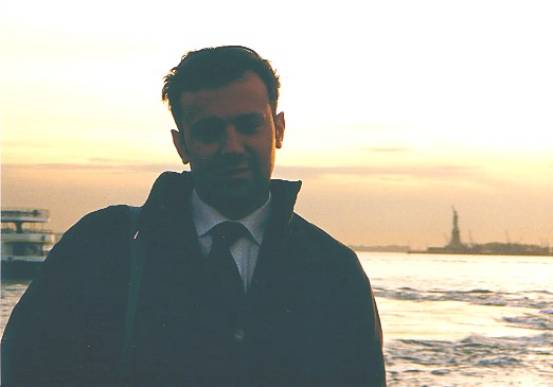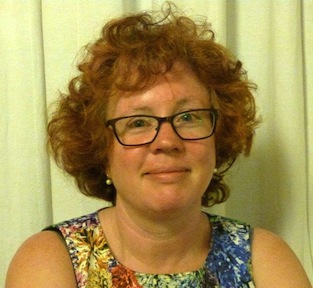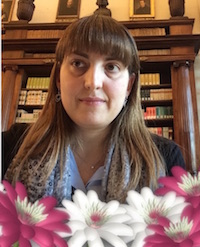Studying at the University of Verona
Here you can find information on the organisational aspects of the Programme, lecture timetables, learning activities and useful contact details for your time at the University, from enrolment to graduation.
Academic calendar
The academic calendar shows the deadlines and scheduled events that are relevant to students, teaching and technical-administrative staff of the University. Public holidays and University closures are also indicated. The academic year normally begins on 1 October each year and ends on 30 September of the following year.
Course calendar
The Academic Calendar sets out the degree programme lecture and exam timetables, as well as the relevant university closure dates..
| Period | From | To |
|---|---|---|
| Presentazione corsi di laurea | Oct 1, 2012 | Oct 1, 2012 |
| I semestre | Oct 2, 2012 | Jan 12, 2013 |
| II semestre | Feb 25, 2013 | May 31, 2013 |
| Session | From | To |
|---|---|---|
| Sessione esami invernale | Jan 14, 2013 | Feb 23, 2013 |
| Sessione esami estiva | Jun 3, 2013 | Jul 27, 2013 |
| Sessione esami autunnale | Sep 2, 2013 | Sep 30, 2013 |
| Session | From | To |
|---|---|---|
| Sessione lauree autunnale | Nov 22, 2012 | Nov 24, 2012 |
| Sessione lauree invernale | Mar 25, 2013 | Mar 27, 2013 |
| Sessione lauree estiva | Jul 10, 2013 | Jul 13, 2013 |
| Period | From | To |
|---|---|---|
| Festa di Ognissanti | Nov 1, 2012 | Nov 1, 2012 |
| Festa dell'Immacolata Concezione | Dec 8, 2012 | Dec 8, 2012 |
| Vacanze di Natale | Dec 24, 2012 | Jan 6, 2013 |
| Vacanze di Pasqua | Mar 29, 2013 | Apr 2, 2013 |
| Festa della Liberazione | Apr 25, 2013 | Apr 25, 2013 |
| Festa del Lavoro | May 1, 2013 | May 1, 2013 |
| Festa del Santo Patrono di Verona - San Zeno | May 21, 2013 | May 21, 2013 |
| Festa della Repubblica | Jun 2, 2013 | Jun 2, 2013 |
Exam calendar
Exam dates and rounds are managed by the relevant Foreign Languages and Literatures Teaching and Student Services Unit.
To view all the exam sessions available, please use the Exam dashboard on ESSE3.
If you forgot your login details or have problems logging in, please contact the relevant IT HelpDesk, or check the login details recovery web page.
Should you have any doubts or questions, please check the Enrollment FAQs
Academic staff
 daniela.carpi@univr.it
daniela.carpi@univr.it
Gallo Valentina
 valentina.gallo@univr.it
valentina.gallo@univr.it
 cecilia.grana@univr.it
cecilia.grana@univr.it

Ligas Pierluigi
 pierluigi.ligas@univr.it
pierluigi.ligas@univr.it
 +39 045 802 8408
+39 045 802 8408

Locher Elmar
 elmar.locher@univr.it
elmar.locher@univr.it
 +39 045802 8311
+39 045802 8311
 silvia.monti@univr.it
silvia.monti@univr.it
 carmen.navarro@univr.it
carmen.navarro@univr.it
 sara.paolini@univr.it
sara.paolini@univr.it
 maurizio.pegrari@univr.it
maurizio.pegrari@univr.it
 francesco.vecchiato@univr.it
francesco.vecchiato@univr.it

Zaccarello Michelangelo
 michelangelo.zaccarello@univr.it
michelangelo.zaccarello@univr.it
 +39 045 802 8330
+39 045 802 8330
Study Plan
The Study Plan includes all modules, teaching and learning activities that each student will need to undertake during their time at the University.
Please select your Study Plan based on your enrollment year.
1° Year
| Modules | Credits | TAF | SSD |
|---|
Prima lingua straniera anno ISeconda lingua straniera anno IPrima letteratura straniera anno ISeconda letteratura straniera anno IInformation Technology
2° Year activated in the A.Y. 2013/2014
| Modules | Credits | TAF | SSD |
|---|
Prima lingua straniera anno IISeconda lingua straniera anno IIPrima letteratura straniera o materia d'area anno IISeconda letteratura straniera o materia d'area anno IIUn insegnamento a sceltaUrban, commercial and transportation geography
Un insegnamento a sceltaUn insegnamento a scelta3° Year activated in the A.Y. 2014/2015
| Modules | Credits | TAF | SSD |
|---|
Prima lingua straniera anno IIISeconda lingua straniera anno IIIUn insegnamento a scelta| Modules | Credits | TAF | SSD |
|---|
Prima lingua straniera anno ISeconda lingua straniera anno IPrima letteratura straniera anno ISeconda letteratura straniera anno IInformation Technology
| Modules | Credits | TAF | SSD |
|---|
Prima lingua straniera anno IISeconda lingua straniera anno IIPrima letteratura straniera o materia d'area anno IISeconda letteratura straniera o materia d'area anno IIUn insegnamento a sceltaUrban, commercial and transportation geography
Un insegnamento a sceltaUn insegnamento a scelta| Modules | Credits | TAF | SSD |
|---|
Prima lingua straniera anno IIISeconda lingua straniera anno IIIUn insegnamento a scelta| Modules | Credits | TAF | SSD |
|---|
Legend | Type of training activity (TTA)
TAF (Type of Educational Activity) All courses and activities are classified into different types of educational activities, indicated by a letter.
Spanish Literature II [CInt A-L] (2013/2014)
Teaching code
4S00843
Teacher
Coordinator
Credits
9
Language
Spanish
Scientific Disciplinary Sector (SSD)
L-LIN/05 - SPANISH LITERATURE
Period
I semestre dal Oct 1, 2013 al Jan 11, 2014.
Location
VERONA
Learning outcomes
The course aims at providing skills and critical instruments for understanding Spanish literature and culture of the Golden Age within their historical and social context. The course will develop abilities of textual reading and analysis of fundamental texts both in prose (Don Quijote) and verse (Garcilaso de la Vega, Santa Teresa de Jesús, Luis de León, San Juan de la Cruz…).
Program
Sylabus:
The course aims at providing skills and critical instruments for understanding Spanish literature and culture of the Golden Age within their historical and social context. The course will develop abilities of textual reading and analysis of fundamental texts both in prose (Don Quijote) and verse (Garcilaso de la Vega, Santa Teresa de Jesús, Luis de León, San Juan de la Cruz…)
Sylabus
- Alle radici dell’Europa. Mori, giudei e zingari nei paesi del Mediterraneo occidentale (Volume II: secoli XVII-XIX), a cura di F. Gambin, Firenze, Seid, 2009.
- Antología comentada de la literatura española. Historia y textos. Siglo XVI, a cura di Andrés Amorós, Madrid, Castalia, 2007 [All’inizio del corso verranno indicati i capitoli e i testi antologici che formano parte del programma d’esame].
- M. de Cervantes, Don Quijote de la Mancha, ed. di L. A. Murillo, Madrid, Castalia, 2 voll.
- M. Socrate, Il riso maggiore di Cervantes. Le opere e i tempi, Firenze, la Nuova Italia, 1998, soprattutto pp. 1-37 e pp. 55-128.
Recommended but not required critical bibliography:
- C. Samonà, G. Mancini, F. Guazzelli, A. Martinengo, La letteratura spagnola. I secoli d’oro, Milano, Biblioteca Universale Rizzoli.
- M. G. Profeti (a cura di), L’età d’oro della letteratura spagnola: Il Cinquecento, Firenze, La Nuova Italia, 1997.
- AA. VV., De Cervantes y el islam, ed. di N. Martínez de Castilla e R. G. Benumeya Grimau, Madrid, Sociedad Estatal de Conmemoraciones Culturales, 2006.
- J. H. Elliott, La Spagna imperiale. 1469-1716, Bologna, Il Mulino, 2006.
- H. Rawlings, L’inquisizione spagnola, Bologna, Il Mulino, 2008.
- Alle radici dell’Europa. Mori, giudei e zingari nei paesi del Mediterraneo occidentale (Volume I: secoli XV-XVII), a cura di F. Gambin, Firenze, Seid, 2008.
- A. Vanoli, La reconquista, Bologna, Il Mulino, 2009.
- G. Bessong, I sefarditi, Bologna, Il Mulino, 2010.
- F. Márquez Villanueva, Moros, moriscos y turcos en Cervantes. Ensayos críticos, Barcelona, Bellaterra, 2010.
- A. M. Paramio, J. C Villaverde Amieva, A. I. Beneyto Lozano, Memoria de los Moriscos, escritos y relatos de una diáspora cultural, Madrid, Sociedad Estatal de Conmemoraciones Culturales, 2010.
- E. González Ferrín (coord.), Al-Andalus: paradigma y continuidad, Sevilla, Fundación Tres culturas (colección ánfora), 2011.
- S. Monti (a cura di), L’età di Carlo V. La Spagna e l’Europa, Verona, Fiorini, 2011.
| Author | Title | Publishing house | Year | ISBN | Notes |
|---|---|---|---|---|---|
| Felice Gambin (a cura di) | Alle radici dell’Europa. Mori, giudei e zingari nei paesi del Mediterraneo occidentale (Volume II: secoli XVII-XIX), | Seid, Firenze. | 2009 | ||
| AAVV | Antología comentada de la literatura española | castalia | 2006 | ||
| M. de Cervantes | Don Quijote de la Mancha ( ed. di L. A. Murillo) | Madrid, Castalia (2 voll.). | 2006 | ||
| Mario Socrate | Il riso maggiore di Cervantes. Le opere e i tempi | Firenze, La Nuova Italia | 1998 |
Examination Methods
Attending students will take a self-assessment test (verifica in itinere) during the course. The grade given will be part of the final grade. The self- assessment test will be done only once (in December).
Students who pass the written exam will have to prepare, for the oral examination, only the second part, which consists on the reading and commenting of Don Quijote.
In order to take the oral exam, students need to have already passed both Lingua spagnola 1 (Spanish Language 1) and Letteratura spagnola 1 (Spanish Literature 1). All students are allowed to take part on the self-assessment test (prova in itinere).
The syllabus is the same for non-attending students. Students who cannot attend the lessons are kindly invited to get in touch with the professor.
Type D and Type F activities
To discover all the teaching activities accredited by the foreign teaching college click here
Career prospects
Module/Programme news
News for students
There you will find information, resources and services useful during your time at the University (Student’s exam record, your study plan on ESSE3, Distance Learning courses, university email account, office forms, administrative procedures, etc.). You can log into MyUnivr with your GIA login details: only in this way will you be able to receive notification of all the notices from your teachers and your secretariat via email and soon also via the Univr app.
Student login and resources
Gestione carriere
Assegnazione tutore
Attività accreditate D/F
Calendario didattico dettagliato
Cambio lingua curriculare
Competenze informatiche
Competenze linguistiche (prima e seconda lingua)
Competenze linguistiche in triennale (terza lingua CFU F)
Compilazione del piano didattico
Corso di Lingua portoghese
Erasmus+ e altre esperienze all'estero
Linguistic training CLA
Presentazione dei corsi di studio e Open day
Graduation
List of theses and work experience proposals
| Stage | Research area |
|---|---|
| PROGETTO MAMBRINO Stage per bibliografia | Various topics |
Saperi minimi
Stage e tirocini
Nel piano didattico della laurea triennale in Lingue per il turismo e il commercio internazionale (L12) è previsto un periodo di stage obbligatorio (CFU 6) in organizzazioni imprenditoriali.
Le attività di stage sono finalizzate a far acquisire allo studente una conoscenza diretta in settori di particolare interesse per l’inserimento nel mondo del lavoro e per l’acquisizione di abilità professionali specifiche.
Le attività di stage sono svolte sotto la diretta responsabilità di un singolo docente presso studi professionali, enti della pubblica amministrazione, aziende accreditate dall’Ateneo veronese.
I crediti maturati in seguito ad attività di stage saranno attribuiti secondo quanto disposto nel dettaglio dal “Regolamento d’Ateneo per il riconoscimento dei crediti maturati negli stage universitari” vigente.
- Tutte le informazioni in merito agli stage per futuri studenti sono disponibili alla pagina Stage e tirocini.
- Tutte le informazioni in merito agli stage per studenti iscritti sono pubblicate in MyUnivr - come fare per - stage e tirocini.
- Tutte le informazioni in merito agli stage per le aziende sono disponili alla pagina Stage e tirocini per azienze.
Ulteriori informazioni al seguente link https://www.univr.it/it/i-nostri-servizi/gestione-carriere-studenti-lingue-e-letterature-straniere/stage-e-tirocini-lingue-e-letterature-straniere











































